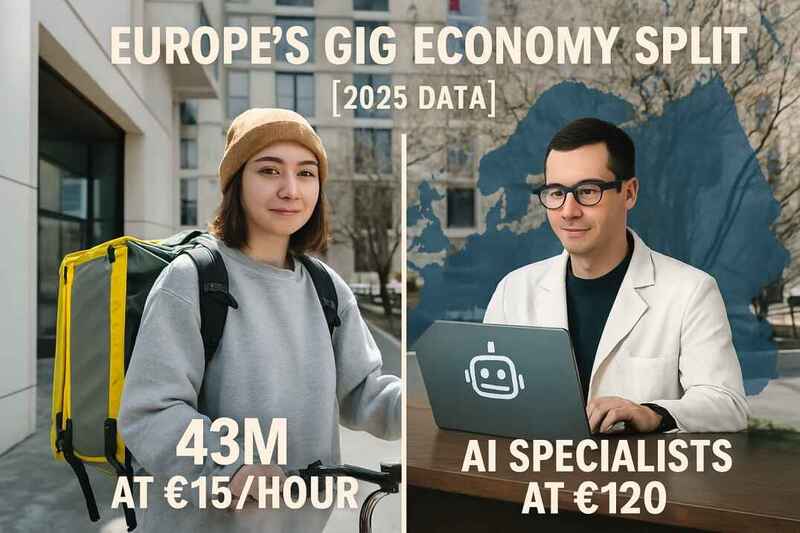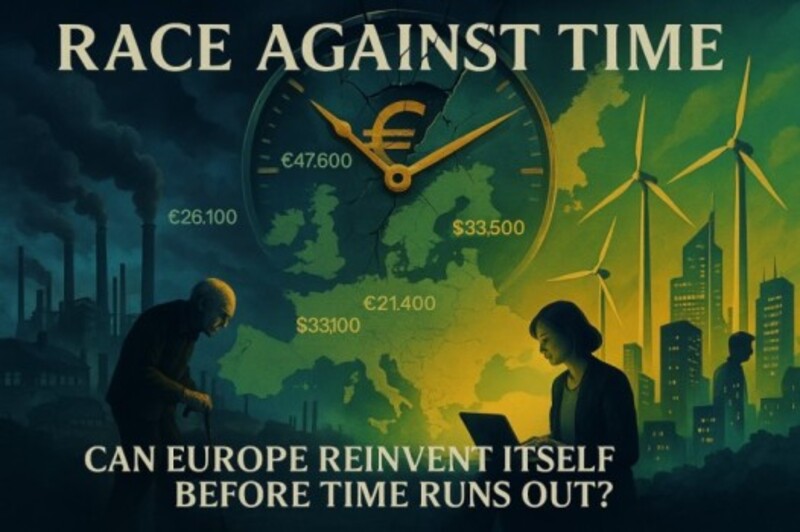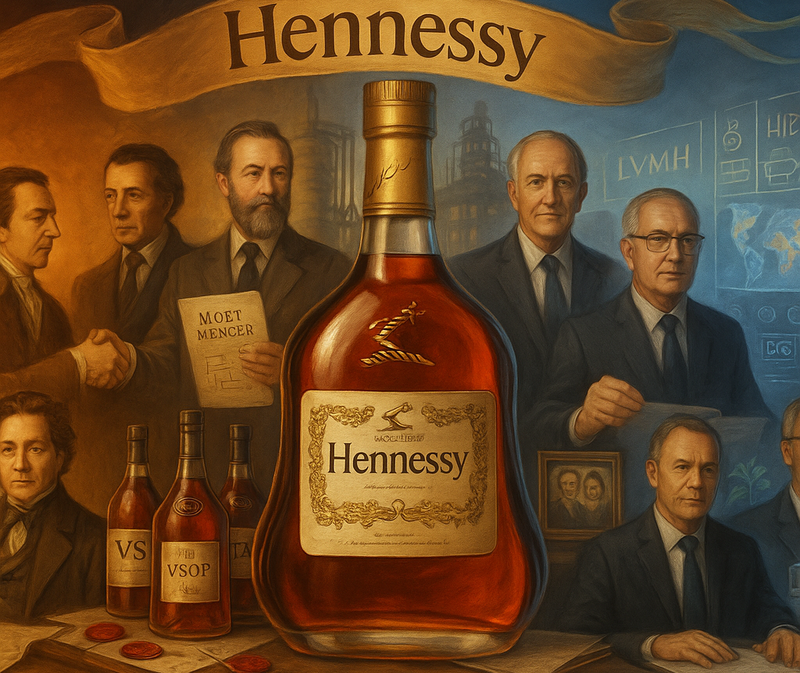 A representation of Hennessy's leaders over time. Hennessy a type of brandy made from grapes is a world-renowned French Cognac brand founded by Richard Hennessy in 1765. Image Credits: AI generated.
A representation of Hennessy's leaders over time. Hennessy a type of brandy made from grapes is a world-renowned French Cognac brand founded by Richard Hennessy in 1765. Image Credits: AI generated.
Hennessy’s Sustainable Empire And How A 250 Years+ Cognac Brand Leads With Green Innovation, Heritage, And Global Strategy
🎯 Mission, Vision & Core Values
Mission: To craft and share the finest cognac in the world while protecting the environment, supporting communities, and honoring centuries of heritage.
Vision: To be the global leader in sustainable luxury spirits by combining tradition, craftsmanship, and innovation with a strong commitment to environmental and social responsibility.
Core Values:
- Excellence: A continuous pursuit of perfection in every bottle.
- Heritage: Preserving the legacy and savoir-faire of generations of master blenders.
- Sustainability: Minimizing environmental impact through conscious innovation.
- Integrity: Conducting business ethically and transparently.
- Cultural Respect: Promoting inclusivity, diversity, and global appreciation.
Hennessy evolved from a family-run business to a globally managed luxury brand under LVMH (1987). With master blenders (cellar masters) passing down knowledge through apprenticeships, the brand maintains traditional craftsmanship. Simultaneously, LVMH introduced corporate governance and ESG frameworks, enabling Hennessy to scale while embracing green innovation.

Over the years, Hennessy has had major sustainability impacts
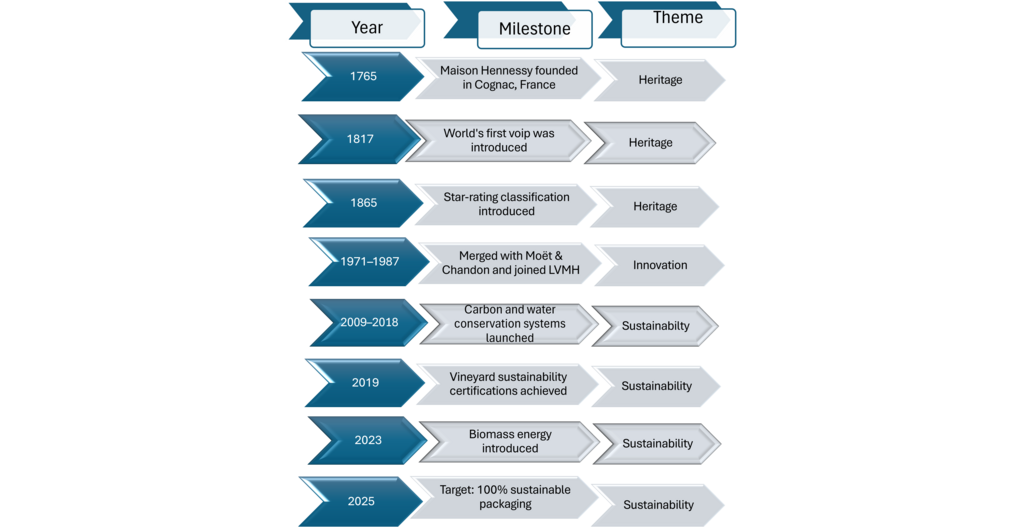
Hennessy has fostered different leadership styles over the years that embrace innovation and heritage. Under LVMH, it combines traditional savoir-faire with cross-functional sustainability strategies. This forward-thinking leadership empowers local teams and supports environmental and social responsibility.
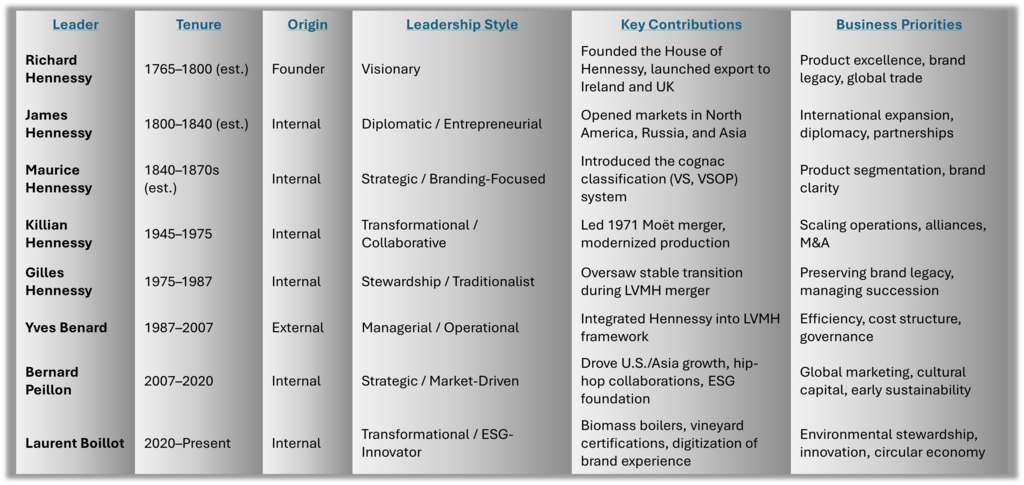
Hennessy’s brand culture is deeply emotional and rooted in loyalty, quality, and prestige. Internally, employees embrace the company's strong sense of tradition and innovation. Externally, the brand cultivates a ‘cult-like’ following by crafting narratives around heritage, exclusivity, and excellence. Its ambassador-led marketing strategy and collaborations with global artists and designers create strong consumer identity and aspirational value.
- Hip-Hop’s Favorite Cognac: Cognac mentioned in 3,000+ songs (Jay-Z, Tupac, Kendrick Lamar).
- African Market Dominance: Seen as a wealth symbol (Nigeria consumes 40% of global VSOP).
- Luxury Gifting: #1 cognac for Chinese New Year and Diwali
- Works with 1,600+ winegrowers on sustainable viticulture
- Biomass boilers and renewable energy in distillation
- Closed-loop water systems
- Recyclable packaging and lighter glass bottles
- Fair labor and community investments
- Education: Hennessy Fellowship for Black entrepreneurs
- Art: Louvre sponsorship, Afropunk Festival
- Community: Funding schools/hospitals in Cognac region
- Achieve carbon neutrality in production by 2030
- 100% recyclable/reusable packaging by 2026
- Expand sustainable certifications across all suppliers
- Reduce water usage by 30% in distillation (by 2027)
- Strengthen community partnerships via innovation hubs
United States – Hip-hop & mixology trends
China – Premium middle-class
Nigeria – Aspirational luxury
France – Mature market, brand loyalty, slower but steady premiumization
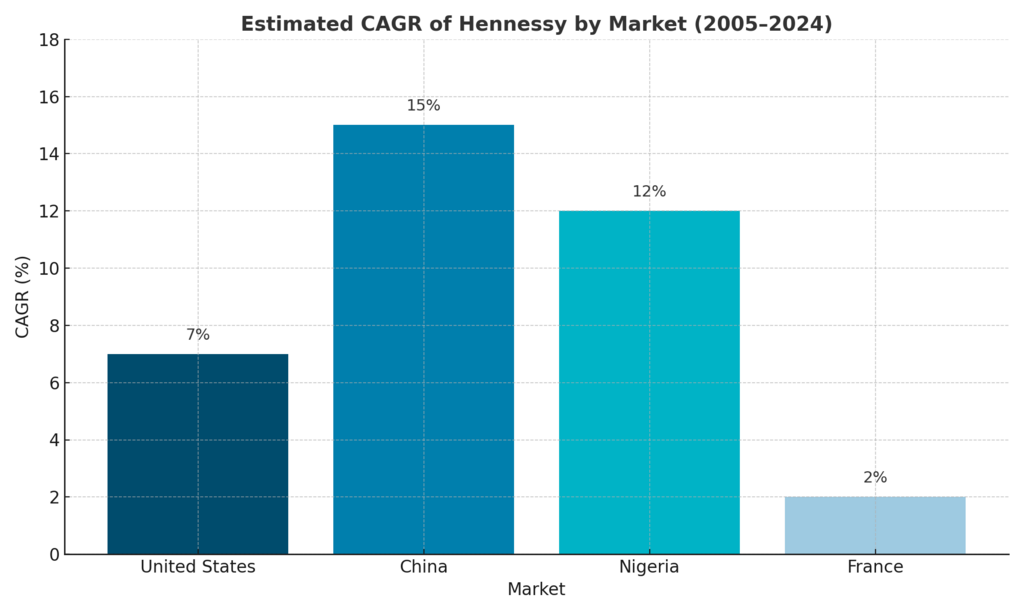
- Strong distributor networks and retail partnerships.
- Global events and cultural sponsorships.
- Product diversification (e.g., limited editions, collectible bottles).
- Synergy with other LVMH brands in travel retail and luxury outlets.
- Its revenue increased from €1.2 billion in 2005 to €3.4 billion in 2024, reflecting a 183% growth over the period.
- On average, Hennessy has generated approximately €2.3 billion per year over the last two decades.
- Champagne: Moët & Chandon, Dom Pérignon
- Whisky: Glenmorangie
- Vodka: Belvedere
- Hennessy Black: Entry-level cognac
- Paradis Imperial: $25K ultra-premium bottle
- NFTs (e.g., Hennessy 8 series)
- Digital tastings, virtual marketing
- Prohibition (1920s): Shifted exports to Europe/Asia.
- 2008 Financial Crisis: Doubled down on emerging markets (China, Nigeria).
- COVID-19: Pivoted to e-commerce (+40% DTC sales in 2020).
- Supply Chain Shocks: Localized grape sourcing (95% from the Cognac region).
- Climate change has disrupted grape harvest cycles and quality
- The energy-intensive distillation process challenges sustainability goals.
- Maintaining a consistent global supply during economic uncertainty and logistic constraints.
- Regulatory issues such as Alcohol advertising bans (e.g., Nigeria) and trade tariffs in key markets like the U.S. and China.
- Increasing pressure from eco-conscious consumers demanding more transparency and action.
- Gen Z Trends: Lower alcohol consumption vs. millennials.
- RTD (Ready-to-Drink) Cocktails: Expanding into premixed luxury drinks.
- AI & Precision Distillation: Using data to optimize blends.
- Non-Alcoholic Cognac: Experimenting with dealcoholized versions.
Internal succession dominated until 1987, reflecting the brand’s family heritage.
Post-LVMH era shifted to performance-driven leadership, aligned with luxury market growth.
Since 2020, ESG and sustainability have become the strategic north star of the brand, reflecting evolving consumer values and climate urgency.
Hennessy’s journey shows that heritage brands can successfully integrate sustainability without compromising tradition. By investing in green technologies, ethical leadership, and social responsibility, Hennessy not only meets regulatory demands but also builds long-term value and trust with consumers.
Key lessons include:
- Sustainability and profitability can co-exist with the right leadership and innovation.
- Environmental action must be integrated into every department and supply chain level.
- Brand legacy can be a powerful driver for ethical transformation.
- Cultural storytelling and inclusive branding strengthen long-term customer loyalty.jj
